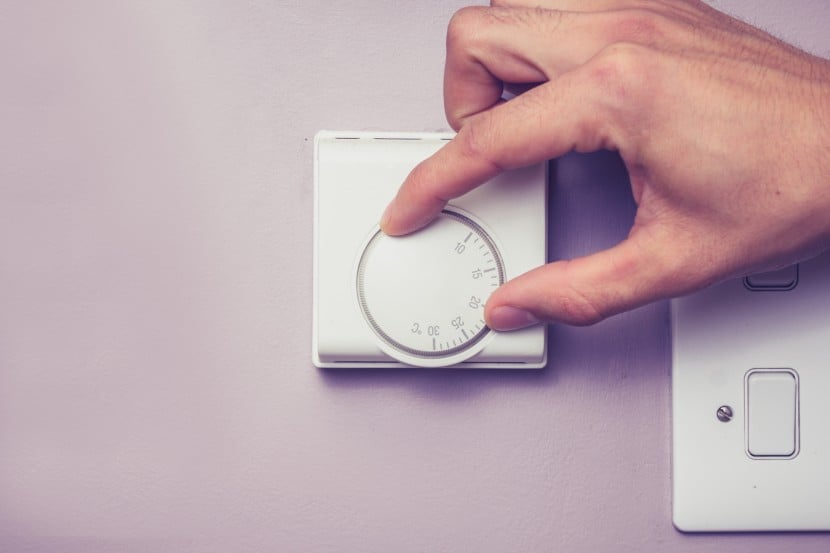The energy price cap is now set at £1,849 until 30 June - a 6.4% increase.
In this guide, we'll look at the energy price cap, predictions for the energy price cap this year and the prepayment price cap.

What is the price cap?
The energy price cap is a cap on the price that suppliers can charge customers for unit rates and standing charges on standard variable tariffs. It’s reviewed 4 times a year and is set by Ofgem, the energy regulator. It was introduced to protect customers from high energy prices.
The level of the price cap for the current period (1 April to 30 June 2025) is £1,849. This is the yearly cost for a medium-sized household on a dual fuel tariff which uses an average amount of energy and pays by Direct Debit. This is a third consecutive increase for customers not on fixed energy tariffs.
What is the prepayment price cap?
The prepayment price cap works in the same way as the regular cap. Its level for the current period is £1,803.
What is the Energy Price Guarantee?
The Energy Price Guarantee was a government subsidy introduced to replace the price cap. It was another way of protecting customers from rocketing energy prices at the height of the energy market crisis.
As of April 2025, the price cap sets the price of standard variable tariffs. The Energy Price Guarantee is no longer in use.
How does the price cap affect me?
The price cap only affects those on standard variable tariffs. If you’re on a standard variable tariff, it’s important to remember that the price cap is not a cap on bills. If it’s £1,738, that doesn’t mean that’s the maximum you pay. If you use more energy, you pay more. If you use less, you pay less.
What's the price cap going to be in future?
It’s difficult to confidently predict what the price cap is going to be in future because wholesale energy prices are so easily influenced by external factors. This is what makes it so difficult to advise whether it’s a good idea to fix your energy deal or stay on a standard variable tariff.
Some recent examples have been:
- The Russia-Ukraine war
- Strikes at liquified natural gas plants in Australia
- Disruption in Red Sea shipping as a result of the Israel-Hamas conflict
British Gas regularly releases predictions for the year ahead:
| Price cap level | Annual energy cost for an average usage medium-sized household paying by Direct Debit |
|---|---|
|
1 January to 31 March 2024
|
£1,928
|
|
1 April to 30 June 2024
|
£1,690
|
|
1 July to 30 September 2024
|
£1,568
|
|
1 October to 31 December 2024
|
£1,717
|
| 1 January to 31 March 2025 | £1,738 |
| 1 April to 30 June 2025 | £1,849 |
| 1 July to 30 September (British Gas prediction) | £1,755 |
| 1 October to 31 December (British Gas prediction) | £1,795 |
How is the price cap calculated?
The price cap is calculated according to various factors including:
- The cost of wholesale energy - this is the most significant factor, accounting for about 50% of the price cap
- Network costs - this covers the cost of maintaining the infrastructure of energy systems and accounts for about 19% of the cap
- Operating costs - this covers the cost of billing and metering services, such as smart meter installation and accounts for about 12% of the cap
- Policy costs - these support the government’s environmental and social schemes to help households save energy and reduce emissions, accounting for about 9% of the cap
- VAT - this is set at 5%.
Do I have to be on a price-capped tariff?
You don’t have to be on a price-capped tariff if you don’t want to be. There are a decent amount of fixed energy deals on the market, for both new and existing customers. If you're on a variable tariff now (or if you're not sure but haven't switched for a year or more), switching to a fixed tariff will save you money.
If you're on a fixed tariff, your energy price won't change until your contract ends. So if you want to fix your energy price, it could be worth switching to a fixed tariff.
If you're looking for certainty on your energy bills, compare energy deals to see fixed deals that are currently available.Switching energy providers
What if I’m struggling to pay my bills?
If you’re struggling to pay your bills, there may be help available from a range of sources.
Your first port of call should be your supplier. It’s in both of your interests to ensure that you’re able to manage your payments. So if there’s anything they can do to help, they are bound by Ofgem to do so.
Although there isn't currently any energy-specific government help available, there may be more general cost of living payments available to those on certain means-tested benefits.
There is also help and advice available from charities like Shelter and National Energy Action for those who need it.
Are any suppliers exempt from the price cap?
Ofgem has the right to grant exemptions from the price cap for suppliers that try to generate and supply green energy to customers. This means that they’re allowed to charge unit rates higher than the price cap on standard variable tariffs.
Ecotricity, Good Energy and Green Energy UK are the 3 suppliers who have been granted permanent exemption from the price cap.

